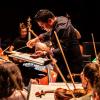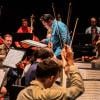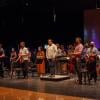
True to its mission and tradition of 62 years, the Cabrillo Festival of Contemporary Music is presenting a bold and imaginative season of new music this summer.
Dubbed “Music as Movement,” the 2024 season — July 29 – Aug. 11 — offers four world premieres, eight West Coast premieres, 14 composers-in-residence, and the Cabrillo Festival’s inaugural Creative Lab.
Cristian Măcelaru is leading the festival in Santa Cruz for the eighth year, having succeeding Marin Alsop’s long tenure (1992–2016). Alsop herself followed in a line of prominent music directors: John Adams (1991), Dennis Russell Davies (1974–1990), Carlos Chávez (1970–1973), Gerhard Samuel (1963–1968).
Măcelaru is as enthusiastic about Cabrillo as ever:
“The excitement of living the moment when a new sound is created, a musical gesture experienced for the very first time, redefining an instance where the only focus is on creativity — these are the ingredients that make our yearly gathering an addicting experience.
“It’s the continuous give-and-take of the experienced musicians helping and encouraging a new generation to embrace the unknown, be open to possibility. It’s why our mission is not only to perform contemporary music but to cultivate the next generation of remarkable talent.”
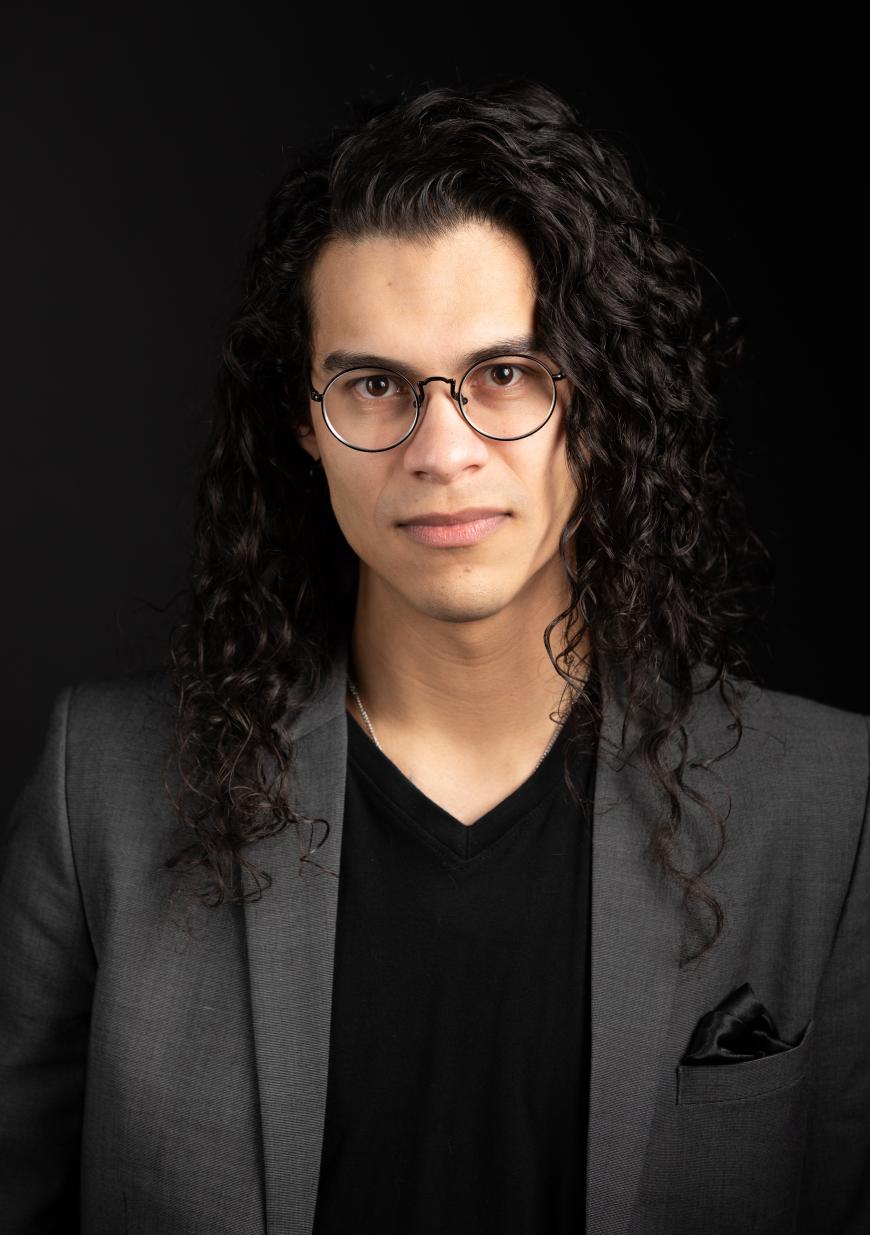
And, from composer Iván Enrique Rodríguez, whose Casting the Dice is a 2024 festival commission:
“Cabrillo serves as the quill that records the annals of United States music history. Countless pioneering composers that now we celebrate as legendary have graced this historic festival, and to contribute with such a meaningful project — it’s truly beyond words.”
In addition to the composers-in-residence, this year's guest artists include Gabriel Cabezas on amplified cello, violinists Leila Josefowicz and Philippe Quint, cellist Karen Ouzounian, and soprano Miriam Khalil.
Cabrillo Executive Director D. Riley Nicholson is proud of “the breadth, depth, and originality of our lineup … enabled by a festival model and community that is equally forward-thinking. We move the art form forward by working to dismantle the traditional barriers associated with orchestral music — providing unmatched access to the creative process through daily free open rehearsals, insightful composer talks and community events, and professional development programs like the Conductors/Composers Workshop, enabling present and future generations of new-music champions.”
The 62nd season begins with a concert of works by Vivian Fung, Helen Grime, Nina Young, and Karim Al-Zand.
The Canadian-born, Berkeley-based Fung sees the West Coast premiere of her Parade, which aims to capture a sense of community amid solitude, reflecting on the journey from isolation to togetherness experienced during the pandemic. Inspired by San Francisco’s Lunar New Year parade, Fung’s piece intertwines chaos and melancholy with empathy and gratitude, echoing the spirit of celebration amid adversity.
The West Coast premiere of Grime’s Violin Concerto, with Josefowicz as soloist, speaks of contrasts. Composed as one continuous movement, the concerto falls into three main sections connected by dreamlike interlinking passages. Violent, virtuosic music covering the whole range of the violin is contrasted with more delicate and reflective material.
Young created Tread softly for the centennial of the 19th Amendment, reflecting on the women’s suffrage movement and the ongoing struggle for gender equality and representation.
And the Tunisian-born, Canadian American Al-Zand sees the world premiere of his Al Hakawati, a journey into the essence of storytelling. Translated as “the storyteller,” the piece is an exploration of “the stories we tell and why we tell them.” The work is based on scenes from an opera in progress.
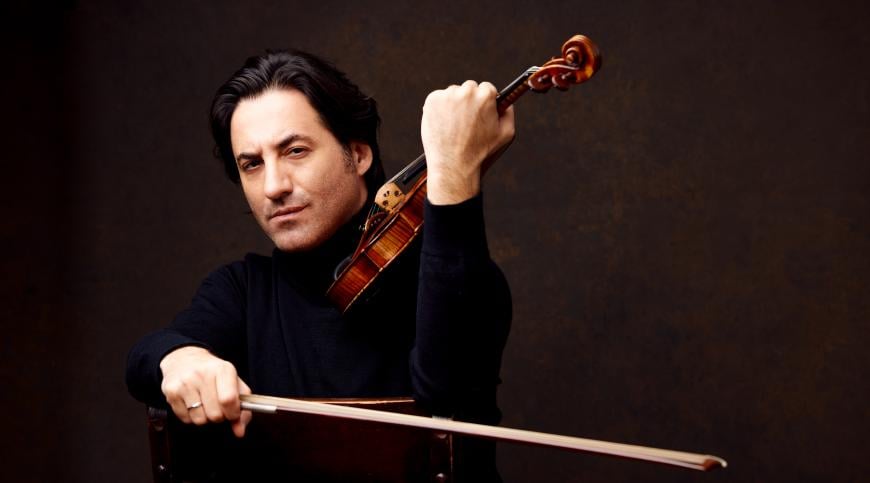
The concert on Aug. 3 includes works by Rodríguez, Daniel Kellogg, and Lembit Beecher. It also features unbound: Phase 1, a world premiere by Nathaniel Heyder, recipient of the inaugural Emerging Black Composers Cabrillo Festival Prize, established to support emerging talent and given to a finalist of the Emerging Black Composers Project (the partnership between the San Francisco Symphony and the San Francisco Conservatory of Music).
After a four-year hiatus, the festival’s free family concert returns on Aug. 4 with VIBE, a lighthearted symphonic exploration by Gregory Smith.
That evening, violinist Quint presents “The Muse,” a chamber recital of pieces by glass-ceiling-shattering composers such as Ethel Smyth, Clara Schumann, Nadia Boulanger, and Florence Price. “The Muse” culminates in a contemporary work by Quint’s mother, composer Lora Kvint, and also features music from today’s preeminent female composers, including Lera Auerbach, Jessie Montgomery, and Errollyn Wallen, with poetry by Auerbach and Gertrude Stein.
The second weekend of the festival opens with the debut of Cabrillo’s Creative Lab, which has incubated a world premiere by Bora Yoon, along with Gabriella Smith’s Lost Coast, a cello concerto for soloist Cabezas.
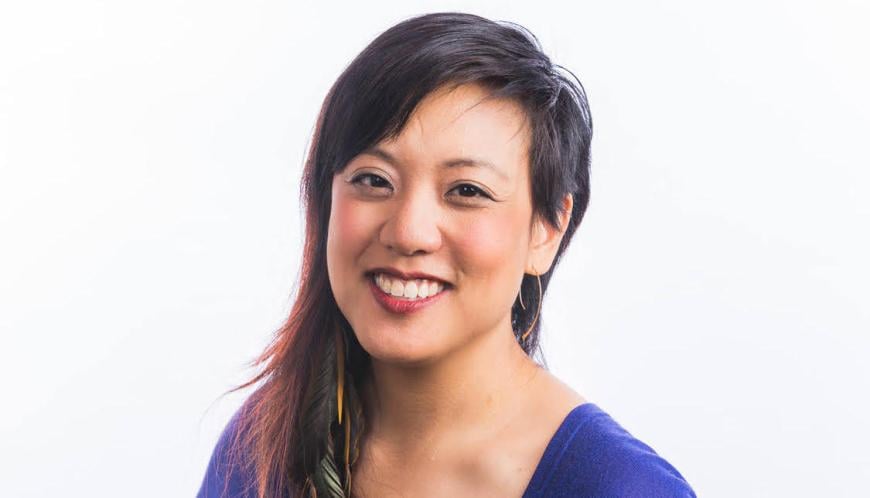
The piece from Yoon, a Korean American composer, vocalist, and sound artist, is titled PARHELION and is described as the result of “creative freedom through spatial placement of the orchestra, technology, and production design … which defies conventional boundaries, immersing listeners in a captivating fusion of sound and light.”
On Aug. 11, the festival concludes with a concert of works by Clarice Assad (Baião ’N’ Blues), Errollyn Wallen (Violin Concerto), Pierre Jalbert (Passage, which pays homage to Beethoven’s Fourth Symphony), and Juan Pablo Contreras (Mariachitlán).
Subscriptions tickets ($295 to $360) are available beginning April 30, and single tickets ($30 to $82) go on sale June 4.


